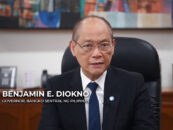Did you know that only 3 % of the Philippines’ 113 million population have insurance?
That’s a vast potential that is attracting more attention when coupled with their changing attitude to insurance thanks to digitalisation. This includes a better understanding of insurance as providing a financial safety net when something terrible happens.
A recent Statista survey found that 49 % of respondents in the Philippines said they purchased online insurance from insurance provider sites/apps. The leading methods of purchase are e-commerce, travel sites, and comparison sites respectively.

Preferred platforms for purchasing online insurance in the Philippines. Source: Statista
More digital solutions and business models by insurtech in Philippines
There are more purchasing channels now compared to traditional models, with Filipinos willing to adopt new digital solutions and business models introduced by insurance technology (insurtech).
“Gone are the days of overwhelming the customer with pages of printed forms. Their time is valuable, and with the pandemic, we also need to adjust fast to remote selling, which has become the new normal. The pandemic has undeniably recalibrated the way we do work, bringing digital solutions into the limelight,” said Marcelino Dailo Jr, Etiqa Philippines head of retail insurance, with the recent relaunch of its upgraded unified omnichannel app Smile PH 3.0.
“Right now, we are accelerating our efforts towards a paperless and seamless electronic exchange of data to maintain and improve the company’s productivity during this time.”

Rico Bautista
Meanwhile, Etiqa Philippine President and CEO, believes that leveraging technology can accelerate insurance market penetration and the growth of the insurance industry.
Insurtech companies in the Philippines
Fintech Philippines Report 2022 noted that there are ten insurtech companies in the country: assured, BIMA, Galileo, igloo, Kwik.insure, MarCoPay, MariaHealth, Saphron, Singlife, and VESL. Their advanced technology arsenal includes artificial intelligence, blockchain, and more, enabling automation, hyper-personalization, and broader market penetration through mobile and the internet.
Mario Berta
Speaking at a webinar this year, insurtech firm Igloo Country Manager Mario Berta said that the country “scored very low on insurance penetration, but higher on microinsurance penetration.”
Microinsurance is designed to have affordable rates to cover the specific needs of low-income people. For example, a mobile phone can be insured for as low as 21 pesos (US$0.37) and comes with a P30,000 (US$522) coverage. That’s how accessible and inclusive insurance can be nowadays. The Philippine Life Insurance Association (PLIA) also attributed microinsurance to a four-fold increase in the number of lives insured between 2015 and 2020.
Inclusion factor for promoting innovation in the industry
Inclusion is also driving the country to promote innovation in the insurance industry. Its regulator, the Philippine Insurance Commission (PIC), introduced “Guidelines on the Adoption of a Regulatory Sandbox Framework for Insurance Technology (InsurTech) Innovations” in 2020.
It provides a small-scale testing ground to test new ideas to assess their risks and benefits to customers before launching them to the general public. PIC also issued the “Guidelines on the Adoption of a Regulatory Sandbox Framework for Piloting Agriculture Insurance” in 2021 to support private insurance companies in creating more cost-efficient agricultural insurance for farmers in remote areas.
Considering the Philippines can expect to be hit by around nine tropical cyclones per year, and insurance penetration is very low among the farmers, there is a great need for more players to enter and develop workable solutions that the farmers could adopt and benefit from.
Investors entering the Philippines
The country is seen as a high-growth opportunity for investors as well. In October, global private equity firm Warburg Pincus announced its P20025 million (US$350 million) equity commitment to building a de novo digital general insurance platform for Southeast Asia called Oona Insurance. It began by acquiring PT Asuransi Bina Dana Arta Tbk in Indonesia and Mapfre Insular Insurance Corporation in the Philippines, giving them a foothold in the region.
Rewire, the first digital financial services platform for migrant workers worldwide, rolled out its insurance services to cover family members at home, starting with the Filipino market first. Filipino migrants in the UK and Europe can pay as little as P543.80 (£8) a year per family member to give their families coverage for covid-19, dengue, home fire, and personal accidents and injuries.
Guy Kashtan
“Looking after families back home comes with real-life challenges, complicated by the lack of suitable financial services. Many migrants have never had the option to buy cover for their loved ones, but now, in the event of sickness or natural disasters – such as the typhoons that are typical in the Philippines – our customers can have peace of mind knowing their families are protected,” said Guy Kashtan, co-founder and CEO of Rewire, when debuting the services last May.
Filipinos are becoming savvier with buying insurance online, at home, and abroad. Insurtech, digitalisation, and financial inclusion initiatives and access from the governmental level to the private sector work together to open up the massive potential in its market. A boon for both the industry and the people.
Featured image credit: Edited from Freepik











